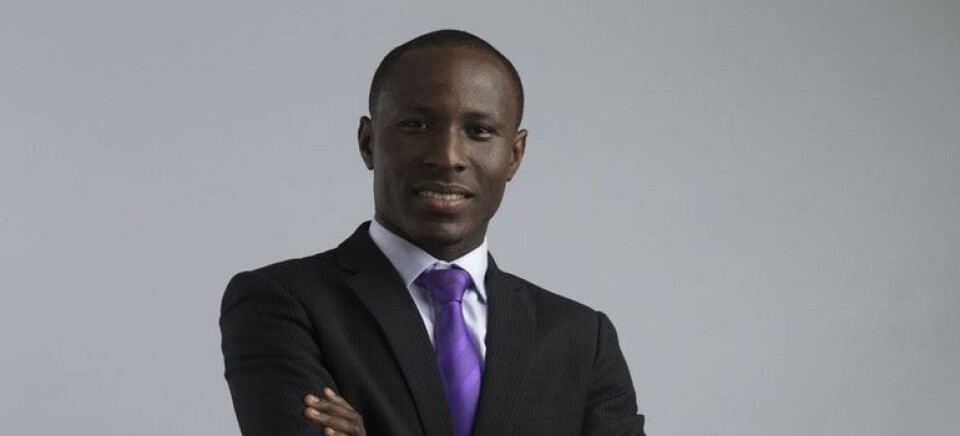If ever a man was born to be a lawyer it is Joe Slovo Tia, currently a senior associate at Lithur Brew & Company in Ghana’s capital, Accra.
The first question I am always asked is “are you Ghanaian,” he laughs. “My father named me after Joe Slovo, the South African freedom fighter who was also a lawyer.”
Slovo was quite young when he discovered his namesake was white, a moment he remembers as both staggering and enlightening. “I thought to myself, what is going on? My father has named me after a white man in South Africa! But, as I learned about Joe Slovo and his life, I realised skin colour does not define what is in a person’s heart.”
That Joe Slovo had been a lawyer who fought the apartheid state was quickly absorbed by the young Slovo whose family life was dominated by politics. His father, a former journalist, served as a member of parliament, a minister of state and later became Ghana’s ambassador to Cuba. His mother worked in the banking sector.
Slovo polished his legal education in 2012 and 2013 with an LLM in International Economic Law from the University of Warwick.
“It is an experience I greatly appreciate now, having had the opportunity to put into practice what I learnt during the programme” he said.
He completed his undergraduate studies at the Kwame Nkrumah University of Science and Technology in Kumasi and then completed his professional law studies at the Ghana School of Law in Accra.
In 2016 he won a place on the International Lawyers for Africa (ILFA) inaugural intra-Africa programme and, from May to July of that year, worked at Templars in Lagos. It was an experience that solidified his legal expertise in commercial law and also ignited a commitment to building professional relationships across Africa.
“From a legal point of view I expected Ghana and Nigeria to be on the same level having both evolved out of the common law system – but, legal practice in Nigeria felt a step ahead especially with regards to the updating and application of commercial legislation. Those months at Templars were among the most valuable of my legal education.”
His work with Lithur Brew & Company, where he has been for four years, focusses on corporate law and commercial dispute resolution, issues born from a stable political environment and thriving economy. He revels at being able to work in a country rated among the fastest growing economies of the world. Issues, for the most part, have moved beyond the political with mining, telecommunications, infrastructure development, banking and power now dominating.
Ghana is Africa’s second biggest producer of gold after South Africa and one of the world’s biggest producers of Bauxite (aluminium). Unlike East Africa, where inflowing capital and economic partnerships are increasingly dominated by China, investors in Ghana are largely from United Kingdom, United States, Europe, Asia and Africa (with South Africa and Nigeria having, arguably, the largest African interest).
For the entrepreneur there are advantages, he says. Labour costs are affordable and there is appropriate constitutional and legislative protection for foreign investment. The Ghana Investment Promotion Centre Act 2013 has made information about investment clear and accessible.
But, he warns, the bureaucracy can be frustrating. “Starting a business means navigating through a lot of permits but there are efforts to consolidate and speed up the process.”
Like most countries, Ghana has regulations protecting local interests and outside investors wanting to wholly own their business are expected to come with equity of US$500 000 – either as cash or in equipment and machinery. Taking on a local partner who has a 10% equity participation drops this investment requirement to US$200 000.
“In some industries like petroleum and the energy sectors, there must be local participation”
There is also regulatory protection for local involvement in a few areas like retail trading.
Slovo is regularly before the courts fighting for the commercial interests of clients. The legislative framework still needs updating in some places, he says. “There are laws and regulations that haven’t kept pace with the changing nature of doing business particularly with the advancement of technology.
The law that regulates companies in Ghana, for instance, was passed in 1963. The time may, therefore, be right to bring it in line with current business practices and technology.”
On the positive side banking legislation was updated recently with the Banks and Specialized Deposit Taking Institutions Act which somewhat clarified the role of the central bank especially in its supervisory role which ultimately benefits depositors.
New on the legal agenda – and in line with Europe’s GDPR - are privacy issues with recent litigation highlighting that it is an issue to watch.
For Slovo, Ghana has come into its own. Politically he believes there is space for more voices and, economically, the middle class can grow substantially.
He is married and he and his wife recently had a baby girl.
He often reflects on the life of Joe Slovo and the impact he has had on his life.
“He was a remarkable person who left a legacy – not only in South Africa but across the continent. Here I am, named after him, in Ghana enjoying the freedoms he wanted for all people. It’s a name I bear with great pride!”
Re-publication of this article is authorised only in the following circumstances; the writer and Africa Legal are both recognised as the author and the website address www.africa-legal.com and original article link is included. A bio can be provided on request.
Re-publication without reference to Africa Legal is not authorised.

